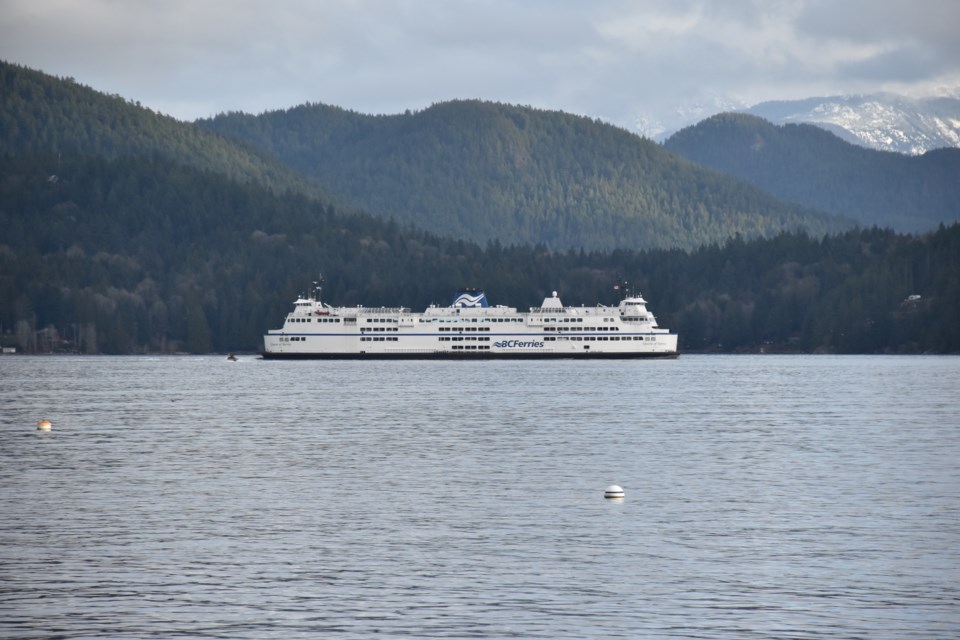“Our system is at capacity.”
That was part of the message BC Ferries President and CEO Nicolas Jimenez delivered today, Aug. 1, to the House of Commons Standing Committee on Transport, Infrastructure and Communities.
“For the last 60 years, BC Ferries has been an essential public service for British Columbians. Last year alone, we transported almost 23 million customers – our third record-setting year in a row,” Jimenez told the committee. “We are a private company that operates provincially under independent regulatory oversight, with a legislated mandate to serve the public interest.”
He stressed, BC Ferries is a foundational part of the provincial and national supply chain, a critical part of the tourism industry, and BC’s marine highway, moving about $8 billion in goods annually.
“Our customers and communities need safe, reliable and affordable service, and my role as CEO is to deliver on that promise,” Jiminez said in a media release, which includes his comments to the house.
Jiminez was on hand to address the standing committee on Transport, Infrastructure and Communities, which is studying the Canada Infrastructure Bank’s financing of new vessels for BC Ferries.
Ferries at capacity
He detailed a list of ongoing issues, including the fact that last summer the major route sailings ran at an average 92 per cent capacity and, as a result, about 250,000 people were left behind due to capacity. As well, only one of the 25 ferry routes can cover its own costs without government subsidy.
Meanwhile, travel demand is projected to rise by 15 per cent – outpacing their capacity even with four new vessels.
Aging fleet and infrastructure
Jiminez told the committee much of the capital infrastructure is “old,” and many of the ferries are well past their design lifespan. More than half of the terminals need significant investment to keep operating safely, and in 2024 the propeller fell off the 61-year-old Queen of New Westminster, resulting in almost 200 days of repairs, countless travel disruptions, and cost BC Ferries about $15 million.
He added, it’s expected operating losses will continue to grow with inflation and, simply to maintain today’s service levels, British Columbians could see their fares increase dramatically.
Shipbuilding options
Jiminez said BC Ferries doesn’t have the flexibility or mandate to over-spend.
“To replace our four oldest ships, we conducted an open and competitive procurement process, independent of political interference and aligned with international best practice,” he said. “In fact, we adjusted the qualifications specifically to enable Canadian shipyards to qualify. Despite two Canadian shipyards then being prequalified, neither chose to formally submit a proposal.”
He explained of the six compliant bids received, all were from foreign countries.
“We chose the proposal that offered the best combination of value, quality, delivery timelines and protections for our customers,” said Jiminez. “And throughout the build, we’ll have a team of Canadian experts onsite in China to ensure high standards of quality, safety and security.”
He noted, other Canadian companies have made the same decision, building almost 100 ships in China over the last decade, including the newest vessel for Marine Atlantic – a federal Crown corporation – which came from this same shipyard.
- There were no Canadian bids.
- This was a choice between a foreign bid or no new ferries.
- Going with another foreign proposal would have cost up to an extra $1.2 billion, resulting in significant and unnecessary increases to passenger fares.
- Even if there had been a Canadian bid, it too would have cost more and those ships would have taken up to a decade longer to build.
“Financing this project privately would have cost up to $650 million more in unnecessary interest – yet another unaffordable fare increase that our customers would have to bear,” he said. “None of these would be acceptable outcomes for our company or for our customers. Whether you live on Vancouver Island, in Powell River, Nanaimo or Langford, on the Lower Mainland, in Maple Ridge, Abbotsford or Langley — or frankly anywhere else in BC where taxpayers help support our marine highway, cost of living is a major consideration and our mandate is to provide a service that is as affordable and reliable as possible.”
He added the current loan with the Canada Infrastructure Bank includes up to $690 million for vessels and $310 million for electrification of ferry terminals to “deliver cleaner, more climate-friendly travel in the future.”
“And to be clear, this is a loan that is received by BC Ferries – not China – and will be repaid with interest by BC Ferries,” Jiminez told the committee. “British Columbians desperately need safe, affordable, reliable new ships to keep them and our economy moving. Our decisions have saved customers and British Columbians unaffordable, unnecessary fare increases and I’m proud we were able to deliver for them.”



